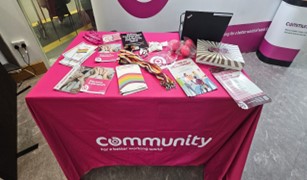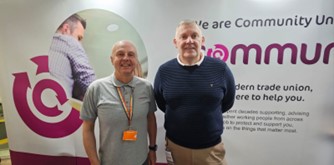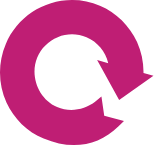Our members at AA Oldbury recently got together with the business to find ways of working together to enhance our equality focus and drive. Our rep, Paul Thomas, reports back.
 The AA has really moved forward with their equality monitoring over the last few years, and the figures now represent a view that can be used to model working solutions.
The AA has really moved forward with their equality monitoring over the last few years, and the figures now represent a view that can be used to model working solutions.
I’m sure they wouldn’t mind me saying it could be better but at an average 75% response rate that is absolutely amazing and down to Sarah Barnett and her team working with the Equality networks.
Throughout the business there will always be underrepresented people and it’s not because representation isn’t there, it’s because very often these people have no visibility through equality monitoring. The easiest way to look at this is gender. We know how many women work for the business, relative to men and other gender assignments because people tell us and the business.
But we need more, we need to be able to see how many of our currently underrepresented people are out there, how many people currently suffer from a disability, either neurodiverse or physical. If we could see figures through equality monitoring around these groups, we could look at collective solutions through the bargaining unit to gain the best outcomes for our people.
 We know for instance many people over 45 joined the motor trade through a passion and the drive of hands-on work. Working within the automotive industry gave them the ability to work without the need for heavy words or numbers, but we are now at a point where technology has surpassed the mechanical and physical challenges, and now there are new challenges within technology and the digital age.
We know for instance many people over 45 joined the motor trade through a passion and the drive of hands-on work. Working within the automotive industry gave them the ability to work without the need for heavy words or numbers, but we are now at a point where technology has surpassed the mechanical and physical challenges, and now there are new challenges within technology and the digital age.
Even coding a job down, we are now a long way away from the days of an “MDT” and numerical coding (12s). Motor manufacturers are pushing forward with levels of security only found in banking applications a few years ago – double authentication in itself worries some of our people.
We discussed as a high level view our neurodiverse people, and those with dyslexia, sitting at a high percentage of those who have disclosed. We want to improve how technology impacts the day to day as a reasonable working adjustment through automatic adjustments in updates. To do this we need buy in from our members, we need our people to really consider the openness of an equality monitoring questionnaire.
Let’s myth-bust: your manager will never have access or see equality monitoring criteria, neither will any managers in the chain. It’s data that is double-locked and remains anonymised for the equality impact of our workforce.
Next year its hopeful through new legislation (soon to be passed) that equality union reps will take on additional challenges through release, and be able to work together with businesses to gain improved outcomes.
Working at the AA we have taken those first steps. We have been engaging with the business as a standalone subject for over 2 years now, and we are part of the equality networks looking at how our people drive change through the impact of deliverable change.
But for us to do better we need to gain more focus from data, and we need to work with the business to improve the data through equality monitoring. I would really like you to think about how your information could help you and others, help us get better.
Even if you fit in to a category where you believe you have no information to give, just by adding your religion, sexuality and disability even if undiagnosed, will help us achieve a better level of conversation with the business.
We have started our conversations on equality and our agenda around working together 12 months before we have to. We are prepared and want to do more, but if we don’t know what data we have, we won’t be able to move forward.
So our agenda for future discussion sits around Normalising Neurodiverse conditions. You shouldn’t have to worry about being dyslexic or having dyspraxia, nor have to think about work as a trigger for anxiety or mental impact. The AA is a great place to work, and at a time where companies are removing funding from diversity and inclusion programmes, the AA want to continue the great progress made and work with us.
 It seems simple, that happy people want to do more when they come to work, they go home happy and achieve better outcomes. Equality monitoring is just the edge we need to discuss how we move forward. It’s not going to be a quick resolve but if we can work together, we can make a start.
It seems simple, that happy people want to do more when they come to work, they go home happy and achieve better outcomes. Equality monitoring is just the edge we need to discuss how we move forward. It’s not going to be a quick resolve but if we can work together, we can make a start.
We talked about acceptance and not tolerance, how that has an impact on our people. Being accepted at work for who you truly are takes so much pressure away, enabling you to work better. Worrying that your dyslexia will be found out, or worrying about targets because younger people can use the computer better shouldn’t be a barrier. Neither should worrying about how people perceive someone’s culture and their heritage, or their sexuality. These are all barriers to being accepted and not tolerated.
As a union we need to look like our people: we need to be our people to represent our people. We need younger representatives, we need black representatives, we need gay representatives, we need people with different values and religious affirmations to develop better outcomes for all of our members,.
We need to look at the impact of reasonable adjustment and how they are made portable. The thought of a reasonable adjustment passport that you could move departments with or move jobs with seems like blue-sky thinking, but it’s something we are talking about.
We will raise as a motion through the logistics sector on the notion of portable reasonable adjustments. You shouldn’t have to go through applications every time your life changes or your role or job changes. Currently there is no legislation beyond the reasonable adjustment for a disabled person covered by H&S and flexible working covered by ERA 1996, but we all want more.
Along with our meeting we took the time as a team to welcome new members at Oldbury with our stall.
 Over 100 people visited with 12 new members signing up. It was a very impactful day. Community’s Operations Director Helen Osgood and Paul Warren, National Secretary for Logistics, were part of our cohort to drive forward positive change through equality.
Over 100 people visited with 12 new members signing up. It was a very impactful day. Community’s Operations Director Helen Osgood and Paul Warren, National Secretary for Logistics, were part of our cohort to drive forward positive change through equality.
They came to our stall and chatted with our people and engaged through our equality meeting.
A message for our members
Please, please consider your equality monitoring questionnaire and help us help you, we are a team of people that work together, and we know one size doesn’t fit all.
 Normalising Neurodiverse conditions
Normalising Neurodiverse conditions
Our agenda will be about normalising neurodiverse conditions such as mental health, autism, Dyslexia and ADHD amongst others within the roadside operation, and looking for the implementation of automatic reasonable adjustments, time and space. This includes time out, G1 and laptop integration with software enhancements, and understanding and accepting with the right education and training.
Impact and resolution of Aging bodies
We want to look at van builds with ergonomic designs for users with ongoing medical concerns, including muscular skeletal symptomatic pain through driving. If there is anything else you would like me to raise, although it may be in future meetings, let us know.
Hopefully we will engage over the equality calendar and the impact on our people highlighting inclusion for everyone, from childcare and emergency leave to individual underrepresented groups.
All of the above sit on and around engagement, wellbeing and equality through the 2010 Equality Act, and achievable outcomes through H&S reasonable adjustments.
Acceptance not tolerance
We need an emphasis on inclusion of not just the underrepresented groups but the status quo without dispensation. By pushing an agenda that engages some people, there is always the counter argument that doesn’t engage others.
We have to move forward with acceptance and not tolerance, in a place where the underrepresented groups are represented in exactly the same way, not as a diverse group, but part of an included agenda without brand separation, creating a social norm.
If the AA and Community union could chair and socialise the model of acceptance and not tolerance, together we could achieve a new social norm, where diversity and inclusion were normalised in a functional way, creating safe spaces for everyone, in the understanding we are different, but the same.
Pictured above: Sarah Barnett (AA), Paul Thomas (Silver Fleet, Community), Helen Osgood (Operations Director, Community), Deb Wood (Community), Paul Warren (Community).
Thank you. We have received your query
We have received your query and a member of our Service Centre Department will be in touch to discuss further with you.
Due to service demands it is not always possible for our advisors to reply to your query immediately. We aim to respond within 48 hours of receipt.
If your employer has invited you to a formal meeting (disciplinary, grievance or appeal) and you are seeking representation, if you have not already done so via this form, please provide us with all relevant supporting information including any notes/minutes from any investigation process and your email/letter of invitation, which should include full details of when and where the meeting is due to take place.
Please note that representation is not provided for investigation meetings.
If you have any further queries, please contact our Service Centre Department on 0800 389 6332 or at servicecentre@community-tu.org.
Not a member?
Let’s get to know each other.
"*" indicates required fields
"*" indicates required fields








